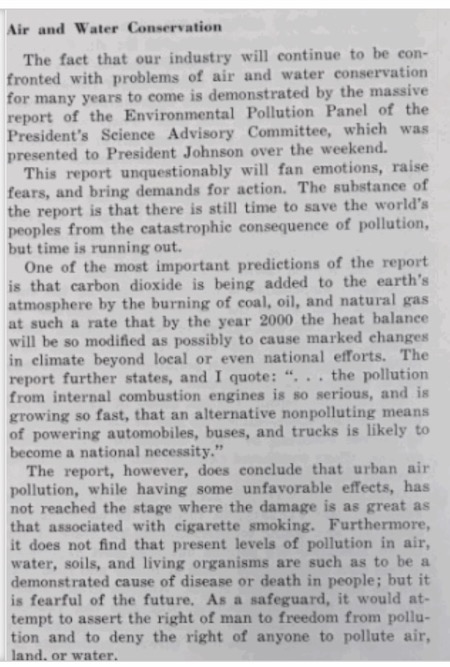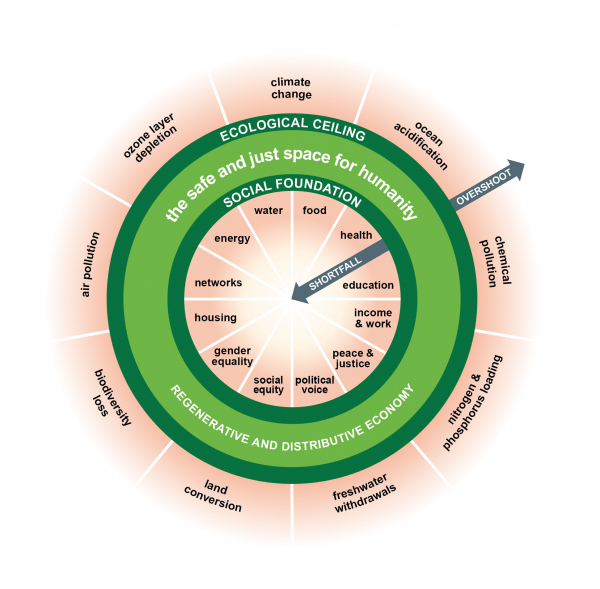Many of us are wondering how we are going to fund efforts to limit global warming and adapt to the changes we cannot prevent. In California we are rapidly building out clean power plants, new transmission lines, and EV charging stations. We are fighting fires, building sea walls, and hardening homes and infrastructure. We are treating patients for heat exhaustion and smoke inhalation, and wrestling with how to limit biodiversity loss. Periods of extreme drought and flooding are forcing us to rethink how we grow crops, manage forests, and add housing. How are we going to pay for all of this?
California has been getting some money from oil and gas companies via its cap-and-trade program, but now the state is going after the industry more directly. On Friday California issued a scathing lawsuit charging Exxon, Shell, Chevron, ConocoPhillips, BP, and the American Petroleum Institute for intentionally spreading misinformation and delaying action on climate. The lawsuit details a history of egregious behavior by these companies to protect their business interests regardless of the damage it would cause. This is not the first such lawsuit, but it is arguably the most important, coming from a large state with a sizable oil and gas industry.
The lawsuit begins by summarizing how much these companies knew and for how long. As early as the 1950’s and through the 1980’s, the American Petroleum Institute, Exxon, Shell, and others were not just learning about but in fact funding research into the effects of carbon dioxide on our climate. A sampling of that history is listed below.
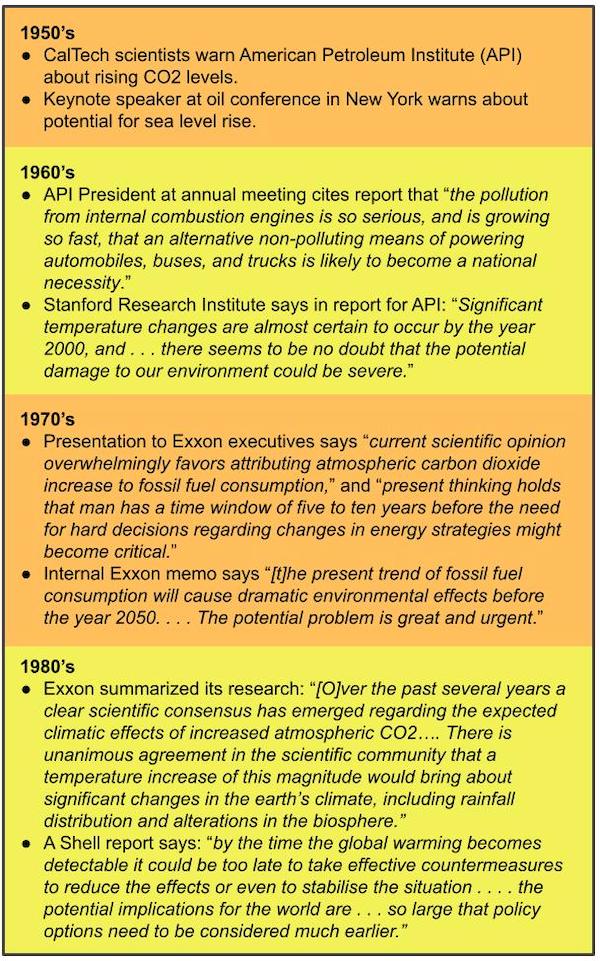
Source: Section IVB of the lawsuit, pages 35-51.
The lawsuit says that “By 1981, Exxon and other fossil fuel companies were actively monitoring all aspects of CO2 and global warming research, and Exxon had recognized that a shift away from fossil fuels and towards renewable energy sources would be necessary to avoid a large CO2 build-up in the atmosphere and resultant global warming.”
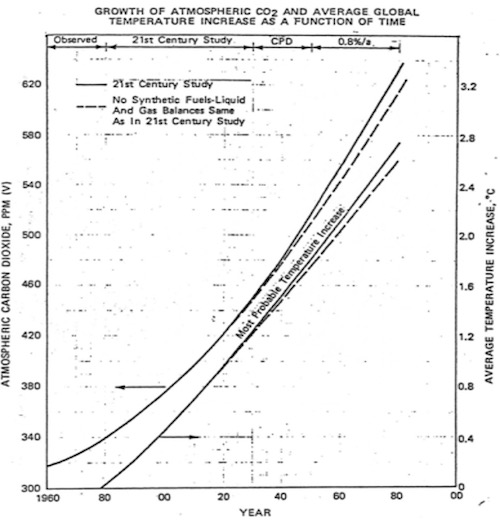
Exxon predicted how CO2 would increase over the coming decades in this graph from 1982. Source: Lawsuit
But after that their forthright approach changed. In the 1980’s the US Congress began to consider policy to address climate change. In 1988 the Intergovernmental Panel on Climate Change held its first conference. The lawsuit claims that this political momentum caused the fossil fuel companies to become more circumspect about their findings and to activate an aggressive defense that involved raising doubts about the science. “The Fossil Fuel Defendants -- both on their own and jointly through industry and front groups such as API (American Petroleum Institute) and the GCC (Global Climate Coalition) -- funded, conceived, planned, and carried out a sustained and widespread campaign of denial and disinformation about the existence of climate change and their products’ contribution to it.”
This is clear in statements they issued in the 1990’s. The suit points to a published Shell report from 1994 that says “Scientific uncertainty and the evolution of energy systems indicate that policies to curb greenhouse gas emissions beyond ‘no regrets’ measures could be premature.” In 1996 the CEO of Exxon says that “taking drastic action immediately is unnecessary since many scientists agree there’s ample time to better understand the climate system.” And in 1996 the American Petroleum Institute said that “no conclusive—or even strongly suggestive—scientific evidence exists that human activities are significantly affecting sea levels, rainfall, surface temperatures or the intensity and frequency of storms.”
A consultant for Exxon during the 1980’s acknowledged this discrepancy between internal knowledge and external statements. “The advertisements that Exxon ran in major newspapers raising doubt about climate change were contradicted by the scientific work we had done and continue to do. Exxon was publicly promoting views that its own scientists knew were wrong, and we knew that because we were the major group working on this.”
The lawsuit goes on to say that: “A quantitative analysis of Exxon’s climate communications between 1989 and 2004 found that, while 83% of the company’s peer-reviewed papers and 80% of its internal documents acknowledged the reality and human origins of climate change, 81% of its advertorials communicated doubt about those conclusions.” At the same time the companies were denying the science, they were hardening their drilling platforms and pipeline infrastructure to account for more severe storms and sea level rise.
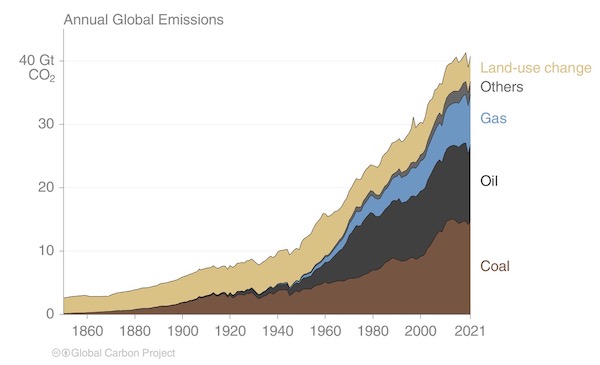
Fossil fuels are by far the largest contributor to anthropogenic emissions. Source: Global Carbon Project, as presented in the lawsuit.
In the late 1990’s and 2000’s, the communication strategy shifted again, away from outright denial and toward emphasizing doubt and uncertainties. Tactics included funding and promoting scientific outliers, hiring a tobacco lobbyist to magnify uncertainty, and generally discrediting the scientific consensus. “According to the Union of Concerned Scientists, from 1998 to 2017, Exxon spent over $36 million funding numerous organizations misrepresenting the scientific consensus that fossil fuel products were causing climate change, sea level rise, and injuries to California, among other communities.”
The campaign was effective. The lawsuit continues: “A 2007 Yale University-Gallup poll found that while 71% of Americans personally believed global warming was happening, only 48% believed that there was a consensus among the scientific community, and 40% believed, falsely, that there was substantial disagreement among scientists over whether global warming was occurring.”
The deception continues today in the form of greenwashing. “Defendants continue to deceive California consumers through misleading advertisements that portray defendants as climate-friendly energy companies and obscure their role in causing climate change.” This includes marketing fuels like Exxon Synergy and Chevron Techron as “better for the environment” and “lower carbon” when in fact they are extremely polluting.
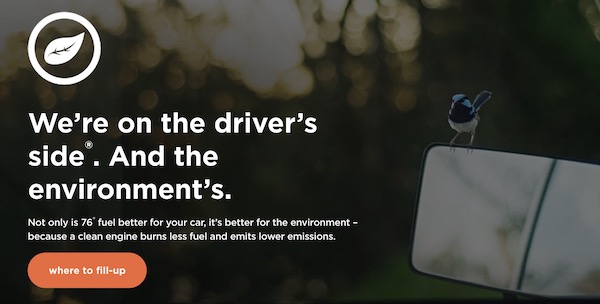
An ad from ConocoPhilipps claims that the company is on the side of the environment. Source: ConocoPhilipps, as presented in the lawsuit.
Moreover, these companies tout their “net zero” goals and sustainability initiatives when nearly all of their investment is in fossil fuels. The lawsuit cites data showing that Chevron spent about 0.2% of its capital budget on low-carbon energy sources from 2010-2018, and BP only 2.3%. None of the companies seems to be investing more than a small fraction even today in low-emission technology, despite reaping record profits.
In the meantime, California residents are saddled with the effects of the ongoing pollution, struggling in our efforts to transition away from oil and gas, and divided in the discourse and politics of climate change in part due to the companies’ disinformation campaigns. “In 2023, only 20% of Americans understand how strong the level of consensus is among scientists that human-caused global warming is happening, and 28% think climate change is caused mostly by natural changes in the environment.”
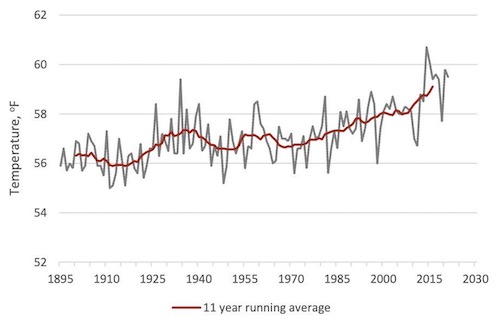
Average annual temperatures in California. Source: Lawsuit
I am encouraged that our Attorney General is going after the fossil fuel companies. Their selfish protection of their business interests has done so much damage. I hope that a win will not only help us to fund and accelerate our transition to a low-carbon future, but that it will also encourage the defendants to radically change their behavior and approach. What do you think?
Current Climate Data
Global impacts (August 2023), US impacts (August 2023), CO2 metric, Climate dashboard
“Earth had its warmest August and June–August period on record, and its fifth consecutive month of record-high global ocean surface temperature”
Comment Guidelines
I hope that your contributions will be an important part of this blog. To keep the discussion productive, please adhere to these guidelines or your comment may be edited or removed.
- Avoid disrespectful, disparaging, snide, angry, or ad hominem comments.
- Stay fact-based and refer to reputable sources.
- Stay on topic.
- In general, maintain this as a welcoming space for all readers.




